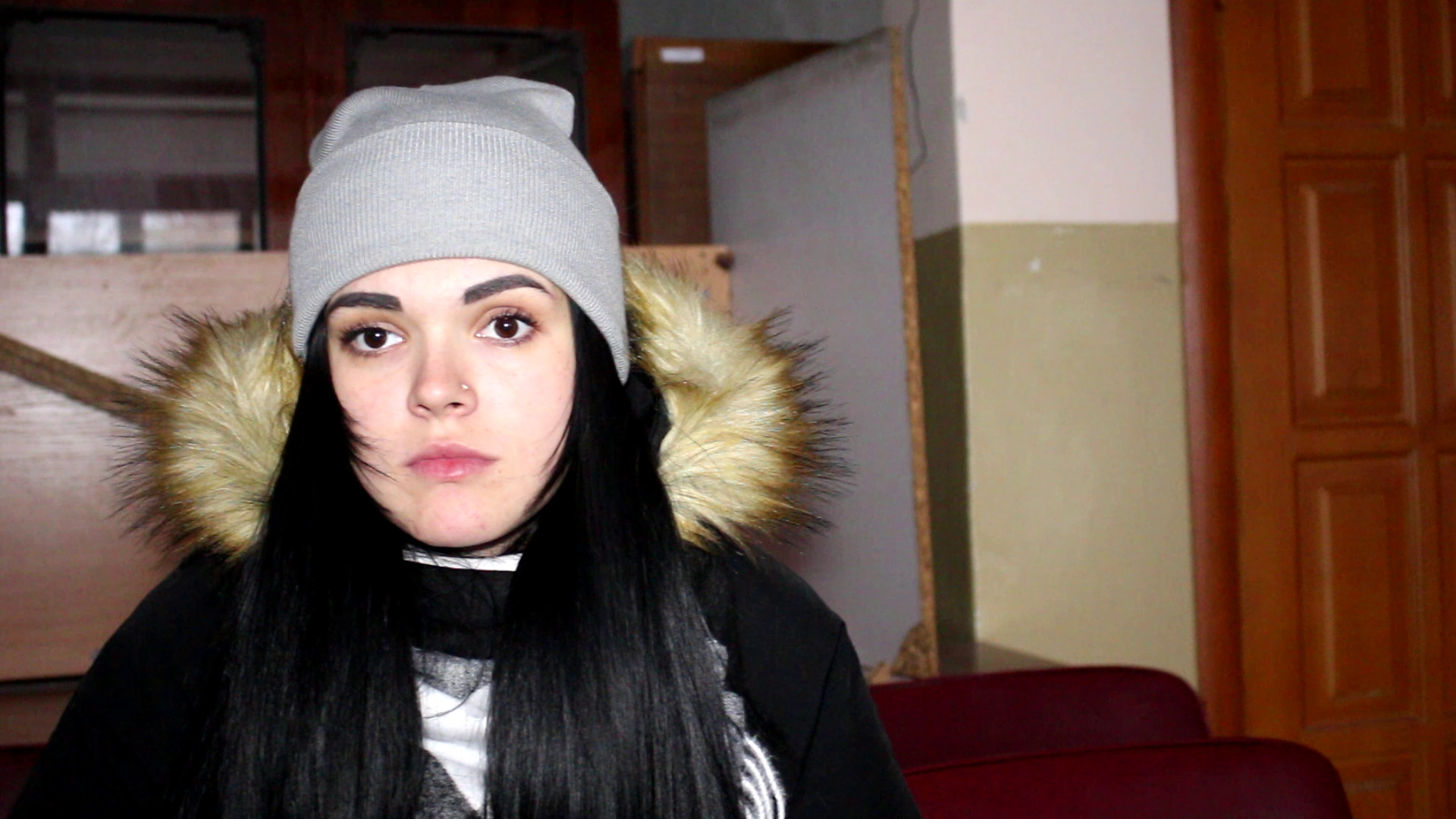Russians kept residents of the Chernihiv Region in the basement for a month
Hanna Yanko is one of those who the Russians locked up for a month in the basement of a local school in Yahodnoye in the Chernihiv region. The Kharkiv Human Rights Group provided legal and humanitarian assistance to her and other victims.
On 24 February, we left Chernihiv and went to my grandmother’s in the village of Yahodnoe. Then, on 3 March, Russian troops entered the village. We immediately lost phone connections. A convoy of their vehicles drove along the Chernihiv-Kyiv highway. Then the street fighting and shelling began. The Russian military tried to persuade us to go to the school’s basement, but we decided to stay home. The next day, people who looked like Kazakhs came. They also allowed us to stay but said: “Only in the basement.”
Then the drunken Buryats came. They went to our basement and started reloading their guns. When we asked them to stop, they said we had five minutes to pack and leave for school.
I asked if I could come into the house to pick up some things and food. They said not a chance, and we must quickly pack up and leave. Well, we went. At first, they did not want to lead us. We asked them to guard us because we did not know what was happening in the village. And so they escorted us and pushed us to go faster with machine guns directed at us. We were taken to the school’s basement, and our phones were removed and smashed. We came in, but it was impossible to get through as people were sleeping on the floor.
Our grandmother was brought there earlier, and we went to her room. The room was small, with 18 people there. In the morning, we were let out into the street, and the women were allowed to go home. Since it was March 8 [International women’s day, widely celebrated in Ukraine and Russia], they let us take some things and food. But what was there to take if they were already looting? There was almost nothing. We lived like that for a month. Sometimes they let us out, but mainly we stayed there. We had to knock on the door to go to the toilet. They would open it with curses and only from time to time.
— You were in captivity for almost a month. Please tell me, were you subjected to torture or ill-treatment? Or perhaps you have witnessed such actions toward other people?
— For me, no, but my parents asked to let them go home. Our grandmother could not sit and had problems with her joints, and everyone slept seated there. Finally, they were released and went home. Then, they came to my parents and, by the hair, dragged my mother to a neighboring house to rape her. Dad was constantly beaten with rifle butts. Similar things happened at school. People were taken out, taken away.
— What did you eat and drink?
— Our men went to the village for water. At first, it was okay, but the Buryats who lived in houses in the village were unhappy and disallowed all comings and goings. Even the Russian military was afraid of the Buryats. They often got drunk and shot at each other. Later, we opened a well and pumped water from there. Sometimes Russian military received food supplies and gave us some.
Our fellow villagers made a field kitchen and, under shelling, cooked food when we had provisions. For example, we cooked semolina porridge for children. While there were still cows, people went to milk them and brought milk. Then the cows were killed, and mines blew some up. After that, we asked the Russians for condensed milk to cook porridge for children.
Once, the Russians gave us pasta: everything was in diesel fuel, and it was impossible to eat. They gave us such oatmeal that everyone had diarrhea.
They didn’t let us go outside. We used to stand and knock since six in the morning. We had to use buckets for the toilet. There were three buckets for 360 people. We knocked and knocked so that they would open.
— Tell me, please, during this month you were in captivity, were there murders or severe beatings of people?

— Yes. One day they brought a man. From Zolotynkа, it seems. He was covered in bruises. At the very beginning, they were shooting at people. An acquaintance was killed because he went out into his yard when they entered and said: “Why did you come here? Glory to Ukraine!” They immediately killed him. Also, the elderly were dying in the basement.
— Do you remember the names of the people or the addresses where it all happened?
— They were dying in the basement. There was no air to breathe there. The dead were left for the night with the living, and then we took them out to the furnace room. We piled up the corpses and asked the Russian military to be allowed to bury them in the cemetery. At first, they allowed it, but then they shelled the graveyard. People carried the dead, and they fired.
— Do you remember when it was?
— I do not remember. Probably mid-March.
— Of your relatives, friends, and acquaintances, was someone injured or wounded?
— An acquaintance, Tolik, was killed. Then the guy Serhii Sorokopudov was wounded. He was taken to Belarus for surgery because the injury was severe. He coughed up blood, and the shoulder blade was completely torn. I know these cases, but most others expired. Whoever the Russians wanted to kill, they shot them upon entering the village. Various people were brought to the basement, and some disappeared somewhere. We no longer know whether they were killed later or something else happened to them.





